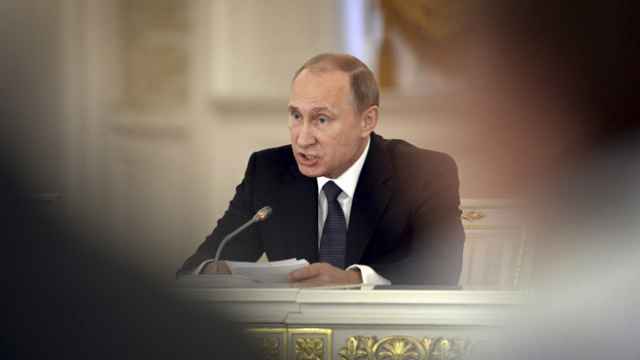Околе́сица: drivel, twaddle
Lately I have been boring myself and everyone else with the same old words to describe what's going on in the world. How many times can you exclaim: Ерунда какая! (What a bunch of nonsense!) Что он говорит? Чушь! (What is he saying? Baloney!) Ты слышал его? Какую ахинею нёс! (Did you hear him? What a load of crap!)
The Russian language — bless its collective, amorphous soul — has plenty of words for nonsense of all kinds. Take the marvelous околесица, which refers to any kind of silliness. Usually the verb pair нести is used: Вчера он какую-то околесицу понес — про апокалипсис, про то, что его на днях "закажут." (Yesterday he talked pure drivel — about the apocalypse, about someone putting out a hit on him.)
The word околесица comes from the adverb около (around, about), which can be combined with вокруг (all around) to have the sense of talking a lot without any purpose. Давайте перестанем ходить вокруг да около этого предложения. Да или нет?! (Let's cut to the chase about the proposal. Yes or no?)
This kind of verbal toing and froing can also be described with the phrase говорить обиняками (to speak in a roundabout way). Он не давал прямого ответа, предпочитая говорить обиняками. (He didn't give a direct answer. He equivocated.) And as you might guess, без обиняков means just the opposite — to speak plainly. Над вами смеются — сказал техник без обиняков. (The technician didn't beat around the bush. "They're making fun of you.")
Then there are lovely words that roll off your tongue, like белиберда and абракадабра. Белиберда (stress on the very last syllable) is thought by etymologists to be a mangled version of a Tatar word, and it means what it sounds like: a lot of meaningless hot air. Сейчас мы наблюдаем засилье пропагандистской белиберды вместо наук в институте. (Now we are seeing the domination of propaganda twaddle instead of science at the institute.)
Абракадабра (abracadabra) is a very old magical word of unknown origin. It was used for incantations, and then was used in hundreds of fairy tales about magic in dozens of different languages. Today in Russian it can mean words the speaker doesn't understand: Фразы, произносимые при этой процедуре, казались мне полной абракадаброй, для них же каждое слово было наполнено смыслом. (The phrases pronounced during the procedure sounded like complete abracadabra to me, but each word was filled with meaning for them.) It can also mean words that are truly senseless: Мне пришла от тебя какая-то абракадабра. Напиши еще раз в читабельном виде, если можно. (What I got from you was abracadabra. Write again legibly, if you can.)
Closer to home and down to earth is plain old бессмыслица (quite literally "non-sense"). Бессмыслица might mean a sentence that doesn't make sense, or a thought, behavior or event that is logically flawed. You know — like everything happening these days. Одно дело читать в газете о бессмыслицах нашего мира, а другое — увидеть их своими глазами. (It's one thing to read about all the absurdities of our world in the newspaper, but it's another matter altogether to see them with your own eyes.)
Also down to earth is бред (delirium, ravings) and its stronger cousin, бредятина (raving nonsense, total absurdity). When you hear some unbelievably stupid news, you can shout: Что за бредятина? (What is this bull?)
The news probably won't change, but at least you'll have a bigger vocabulary to describe it.
Michele A. Berdy, a Moscow-based translator and interpreter, is author of "The Russian Word's Worth" (Glas), a collection of her columns.
A Message from The Moscow Times:
Dear readers,
We are facing unprecedented challenges. Russia's Prosecutor General's Office has designated The Moscow Times as an "undesirable" organization, criminalizing our work and putting our staff at risk of prosecution. This follows our earlier unjust labeling as a "foreign agent."
These actions are direct attempts to silence independent journalism in Russia. The authorities claim our work "discredits the decisions of the Russian leadership." We see things differently: we strive to provide accurate, unbiased reporting on Russia.
We, the journalists of The Moscow Times, refuse to be silenced. But to continue our work, we need your help.
Your support, no matter how small, makes a world of difference. If you can, please support us monthly starting from just $2. It's quick to set up, and every contribution makes a significant impact.
By supporting The Moscow Times, you're defending open, independent journalism in the face of repression. Thank you for standing with us.
Remind me later.








